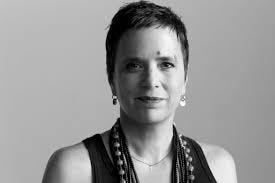Solidarity needed for the women and girls of Afghanistan
Notes from the frontlines of the struggle for women's equality
My online Bard Open Society University Network class "Women Write/Right the World" focuses on how women use writing and other forms of creative expression to make a positive difference in the world. I have students this semester from Myanmar, Bangladesh, Tajikistan, Afghanistan and the United States.
Last week we had a guest speaker, Nahid Shahalimi, editor of the book We Are Still Here: Afghan Women on Courage, Freedom and the Fight to Heard, who reinforced the chilling story we had already been hearing from the Afghan students in the class: that an absolute form of gender apartheid has descended on Afghanistan from the ultra-conservative mullahs now running the country.
I have been studying Afghanistan in my global women's human rights classes for decades, and it is profoundly depressing to find that Afghan women's rights are now back to where things were in the 1990s.
In brief, education is legal for girls only through the 6th grade; women cannot be seen or heard outside of their homes (back under the burqa on the streets, and even the sound of their shoes tapping the pavement is forbidden by edict); women must be accompanied by a mahram—a male chaperone who is a close relative (father, brother, husband, son)—when they leave their homes; most professions are closed to women...the list goes on. And their husbands and fathers will also be severely punished for infractions. Read more about the Taliban edicts here and here.
The Afghan women students in my class are studying clandestinely in their homes, and are worried that even this lifeline of private online education may be taken from them. If they were discovered, they would be punished. I remember last spring one girl could only get internet reception from the roof of her home, but she was afraid to speak out loud there for fear a Taliban or Taliban-supporting neighbor would hear and report her.
Punishment is not a slap on the wrist for women and girls under Afghan gender apartheid. It's imprisonment, with disturbing reports of sexual assault and torture emerging.
The mullahs governing the country are replacing the former secular constitution with sharia law, based on ancient patriarchal interpretations of the Qu'ran. When I studied sharia law with previous generations of students, we read Moroccan scholar Fatima Mernissi's groundbreaking book The Veil and the Male Elite, a feminist reading of the Qu'ran that shows how the Prophet's original text was manipulated by his followers, down through the ages, to enforce a patriarchal authoritarian social structure.
There are a few other brave Muslim women willing to speak out publicly, in writing, against sharia law--for example, Irshad Manji, whose first book, The Trouble with Islam Today, earned her death threats. She's continued her feminist critique of Islam, and now, with her "moral courage" program, has broadened her reach to include a critique of all forms of discrimination, no matter their ideological source.
Moral courage is certainly needed as we confront prejudice and oppression, wherever it rears its ugly face. V (formerly Eve Ensler) baldly calls it fascism in a recent article that deftly exposes the intimate weave between the personal and the political that so often meets on the terrain of women's bodies.
V, who has worked for decades to combat gender-based violence through "writing to right the world" and activist organizing, points to the classic oppressor's tactic of "divide and conquer" as a barrier to effective resistance.
"The antidote to fascism is consciousness and education,” V says.
“We must learn the nature of fascism, what it is, how it operates now in 2024. Then we must name and expose it, call out the oppression, the hate, the misogyny and racism as it is happening. This can be terrifying, which is why we cannot do it alone.
"For so long our movements have been siloed and divided by hunger for scant resources, a feeling of powerlessness and invisibility, a hierarchy of suffering and a lack of vision and understanding that everything is interrelated and interdependent.
"Community and solidarity are our most powerful tools to fight fascism. They create a safe context for us to share so we can know that what we are witnessing and experiencing is real. They catalyze our strength to refuse the forces unraveling our freedoms. They propel us to fight for another way where people are treated with dignity, justice, respect and care."
Gender-based violence and oppression is literally everywhere in the world. Even in supposedly enlightened European countries, unthinkable horrors are inflicted on women's bodies, every so often bursting into the news as they did last week with the scandalous rape trial now going on in France.
V is right to point to education as an essential tool—which can be used for good or for ill, to open people's minds or to close them; to indoctrinate into fascism or to open doors to critical, self-directed, informed thinking.
By all means, let's discuss what should be taught in the schools. Let's discuss the meaning of foundational concepts like justice and freedom for all. Let's discuss gender roles, gender-based discrimination and what true equality would look like.
As a teacher, I don't want to impose my own answers; I just want to give young people the tools to think for themselves, research accurate facts, and have respectful discussions, even when they don't agree.
It's disturbing to me that the American university system—Ohio State University and Yale University, to be exact—produced the likes of JD Vance, a man who has no problem lying and spewing racist, misogynist hate in his quest for power.
And yet how inspiring that we have a highly educated, talented Black woman opposing Vance and his running mate in this year's American presidential election.
If there was ever a time for American women to unite beneath the banner of feminist empowerment, to come together across whatever superficial differences may separate us and speak truth to power with our votes, now is that time.
And then to take our solidarity beyond national borders.
As V says, we need our own "Project 2025," in which the repressive intersectional tentacles of capitalism, imperialism, elitism, racism, and patriarchy are unwound from current social systems, so that humanity can grow and evolve into "the better angels of our nature," finally beginning to live with moral courage and enact our ideals.
To quote another great intersectional feminist, Arundhati Roy, "Another world is not only possible, she is on her way." She needs us to help midwife a better world into being, and there is no time to waste.






Signifying everything.
Amen.